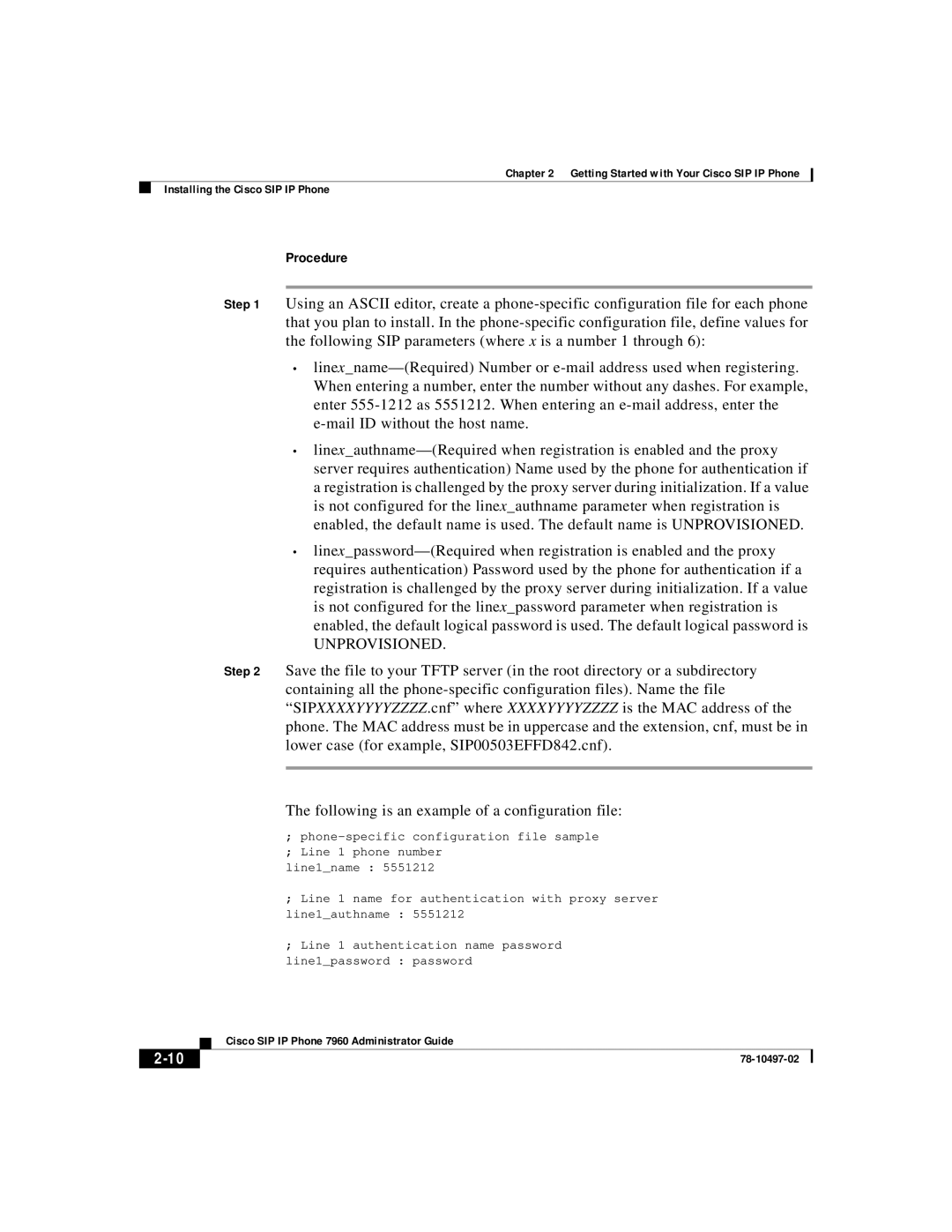Chapter 2 Getting Started with Your Cisco SIP IP Phone
Installing the Cisco SIP IP Phone
Procedure
Step 1 Using an ASCII editor, create a phone-specific configuration file for each phone that you plan to install. In the phone-specific configuration file, define values for the following SIP parameters (where x is a number 1 through 6):
•linex_name—(Required) Number or e-mail address used when registering. When entering a number, enter the number without any dashes. For example, enter 555-1212 as 5551212. When entering an e-mail address, enter the e-mail ID without the host name.
•linex_authname—(Required when registration is enabled and the proxy server requires authentication) Name used by the phone for authentication if a registration is challenged by the proxy server during initialization. If a value is not configured for the linex_authname parameter when registration is enabled, the default name is used. The default name is UNPROVISIONED.
•linex_password—(Required when registration is enabled and the proxy requires authentication) Password used by the phone for authentication if a registration is challenged by the proxy server during initialization. If a value is not configured for the linex_password parameter when registration is enabled, the default logical password is used. The default logical password is
UNPROVISIONED.
Step 2 Save the file to your TFTP server (in the root directory or a subdirectory containing all the phone-specific configuration files). Name the file
“SIP XXXXYYYYZZZZ.cnf” where XXXXYYYYZZZZ is the MAC address of the phone. The MAC address must be in uppercase and the extension, cnf, must be in lower case (for example, SIP00503EFFD842.cnf).
The following is an example of a configuration file:
;phone-specific configuration file sample
;Line 1 phone number
line1_name : 5551212
;Line 1 name for authentication with proxy server line1_authname : 5551212
;Line 1 authentication name password
line1_password : password
| Cisco SIP IP Phone 7960 Administrator Guide |
2-10 | 78-10497-02 |

